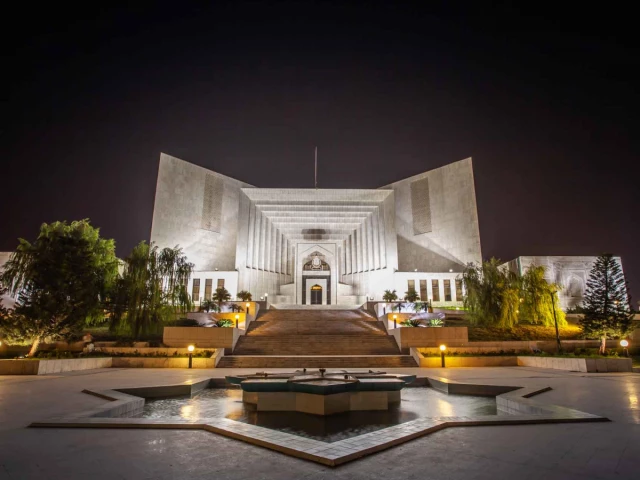ISLAMABAD:
Public discord among Supreme Court justices has intensified following the passage of the 26th constitutional amendment, raising concerns that the growing rifts could further undermine the authority and independence of the country’s highest court.
On Tuesday, a heated exchange between two members of the constitution bench – Justice Jamal Khan Mandokhail and Justice Ayesha Malik – exposed the simmering tensions in the apex court during the hearing of the 26th Amendment case.
The disagreement centered on the approval of the Supreme Court Rules of 2025. Justice Ayesha Malik is among the four judges who objected to the rules being approved through circulation, while Justice Mandokhail insisted that the rules were duly approved in a full bench.
Observers say such public displays of dissent among judges have eroded institutional cohesion and tarnished the judiciary’s moral authority.
After the restoration of the judiciary in March 2009, the Supreme Court had enjoyed unprecedented unity under the then Chief Justice Iftikhar Muhammad Chaudhry, emerging as one of the most powerful institutions in the country.
However, this unity began to fray during former CJP Mian Saqib Nisar’s tenure when an unpleasant confrontation erupted at the SC Peshawar registry after Saqib Nisar abruptly dissolved a bench in the middle of the hearing and excluded Justice Qazi Faez Isa without his consent.
Subsequent chief justices Gulzar Ahmed and Umar Ata Bandial also presided over the courts, where visible divisions continued, culminating in even sharper internal conflicts during former CJP Qazi Faez Isa’s tenure.
Legal analysts argue that the executive took advantage of these divisions, eventually introducing the 26th constitutional amendment last year, a move widely seen as an attempt to curb judicial independence and bring the judiciary under tighter executive control.
Since the amendment was passed, no concerted effort has been made to restore judicial autonomy. Judges considered to be opposed to executive influence have reportedly been sidelined, heightening the sense of internal polarization.
Senior lawyers are now pointing fingers at Chief Justice Yahya Afridi, claiming that the current situation stems from his lack of action. They argue that if the petitions challenging the 26th Amendment had been set down in time for hearing, the judiciary might have avoided its current predicament.
They also say that instead of approving the SC Rules 2025 via circulation, the CJP could have convened a full bench to maintain transparency and unity.
Former Additional Attorney General Tariq Mahmood Khokhar said the 26th Amendment has “inevitably given rise to two factions in the Supreme Court, one opposed to executive dominance and the other eager to cooperate”.
“In such a state, conflict within an institution is inherent,” he noted.
“The cloak has slipped. The 26th Amendment’s inherent fault line is now exposed to the nation. The public clash between two judges in open court is not a matter of personal anger; it is the outward symptom of a deeper institutional struggle over who defines Pakistan’s constitutional order.”
“In supreme irony,” he continued, “the battleground was the ‘Constitution Bench’ itself—a creation of an unrepresentative legislature, conceived and designed not for reform but for control. Its function was to substitute flexibility for independence.”
Khokhar further warned that “regardless of the final outcome, the political and constitutional costs are already evident: an increasingly weakened judiciary facing an increasingly powerful executive. The judiciary is effectively subordinated to an unelected executive. The Supreme Court today is divided not on questions of law, but on tests of loyalty.”
He argued that while the amendment was crafted in the name of judicial reform, its “real purpose was the consolidation of influence. The composition of the Constitutional Council reflected preference, not principle. Independence was displaced by compliance. A token dissent or two was permitted only to preserve the illusion of plurality”.
Khokhar pointed out that the events now unfolding in open court are the direct consequence of the 26th Amendment, which he said created a two-tier judiciary – one inclined to the executive and the other to independence.



